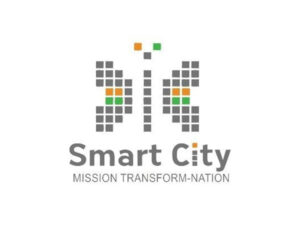GST exemption granted to platform tickets and essential railway services
New Delhi [India], June 22 (ANI): Finance Minister Nirmala Sitharaman announced that the next meeting of the Goods and Services Tax (GST) Council is tentatively scheduled for mid to late August.
GST Council proposes exemption for specific services offered by Indian Railways to the general public, as well as for intra-railway transactions.
The sale of platform tickets and services such as retiring rooms, waiting rooms, cloakroom facilities, and battery-operated car services are now exempt from GST.
This session aims to address the pending agenda items from today’s meeting.
Today’s GST Council meeting was marked by several key decisions aimed at easing the compliance burden and providing relief to taxpayers.
FM Sitharaman said, “Todays GST Council meeting has taken a lot of decisions on trade facilitation, easing compliance burden and relief to tax payers in terms of compliance easing out.”
Among these, significant measures were taken to facilitate trade and simplify processes for businesses and individuals alike.
The GST Council recommended waiving interest penalties on demand notices issued under Section 73 of the GST Act for fiscal years 2017-18, 2018-19, and 2019-20.
This section pertains to cases not involving fraud, suppression, or misstatement. Taxpayers who pay the full tax amount demanded in the notice by March 31, 2025, will benefit from this waiver.
The Council approved an extension for availing input tax credit (ITC) on any invoice or debit note.
For returns filed up to November 30, 2021, the deadline for ITC claims for the fiscal years 2017-18, 2018-19, 2019-20, and 2020-21 is now deemed to be November 30, 2021.
To curb government litigation, the Council recommended setting monetary thresholds for filing appeals by departments: Rs 20 lakh for the GST appellate tribunal, Rs 1 crore for high courts, and Rs 2 crore for the Supreme Court.
In a move to assist small taxpayers, the Council extended the deadline for furnishing returns from April 30 to June 30 for the fiscal year 2024-25 and subsequent years.
The Council clarified that all types of sprinklers, including fire and water sprinklers, will attract a uniform GST rate of 12 percent.
Furthermore, accommodation services valued up to Rs 20,000 per person per month, provided for a continuous period of at least 90 days, will also be exempt.
This exemption will benefit hostels and similar accommodations run by various social and community organizations.
The Council recommended the phased rollout of biometric-based Aadhaar authentication for GST registration applicants across India.
Bihar’s Deputy Chief Minister Samrat Chaudhary has been appointed as the Chairman of the Group of Ministers (GoM) on Rate Rationalization. The GoM will present a status report in the next meeting, followed by work on rate rationalization.
The Council recommended a uniform GST rate of 12 percent on all milk cans, regardless of their material (steel, iron, aluminum), to eliminate disputes.
A 12 per cent GST rate was also recommended for all types of carton boxes and cases made from both corrugated and non-corrugated paper or paperboard, a move that will particularly benefit apple growers in Himachal Pradesh and Jammu & Kashmir.
A uniform GST rate of 12 percent was recommended for solar cookers, whether single or dual energy source, reflecting the Council’s support for renewable energy initiatives.
Sitharaman reiterated the central government’s intent to bring petrol and diesel under the Goods and Services Tax (GST) framework.
She highlighted that the groundwork for this inclusion was laid during the initial implementation of GST and emphasized that the decision now lies with the state governments.
Nirmala Sitharaman recalled the foundational discussions led by former Finance Minister Arun Jaitley, who articulated the vision of eventually including petrol and diesel under GST.
“GST was implemented, I distinctly remember senior minister Arun Jaitley talking about that the progress so exists already in that meaning, GST, petrol and diesel can be handled for which the law has been already embedded”, Sitharaman stated.
The central government has long maintained that incorporating petrol and diesel into GST would streamline tax rates and potentially reduce prices for consumers.
However, the Finance Minister clarified that this move requires consensus among the states, as they play a crucial role in determining the rate of taxation.
The 53rd meeting of the GST Council, presided over by Union Finance Minister Nirmala Sitharaman, took place at Bharat Mandapam in New Delhi today.
The meeting saw the participation of Union Minister of State for Finance Pankaj Chaudhary, Chief Ministers of Goa and Meghalaya, Deputy Chief Ministers of Bihar, Haryana, Madhya Pradesh, and Odisha, alongside Finance Ministers from various States and Union Territories (with legislatures), and senior officials from both Union and State governments.






